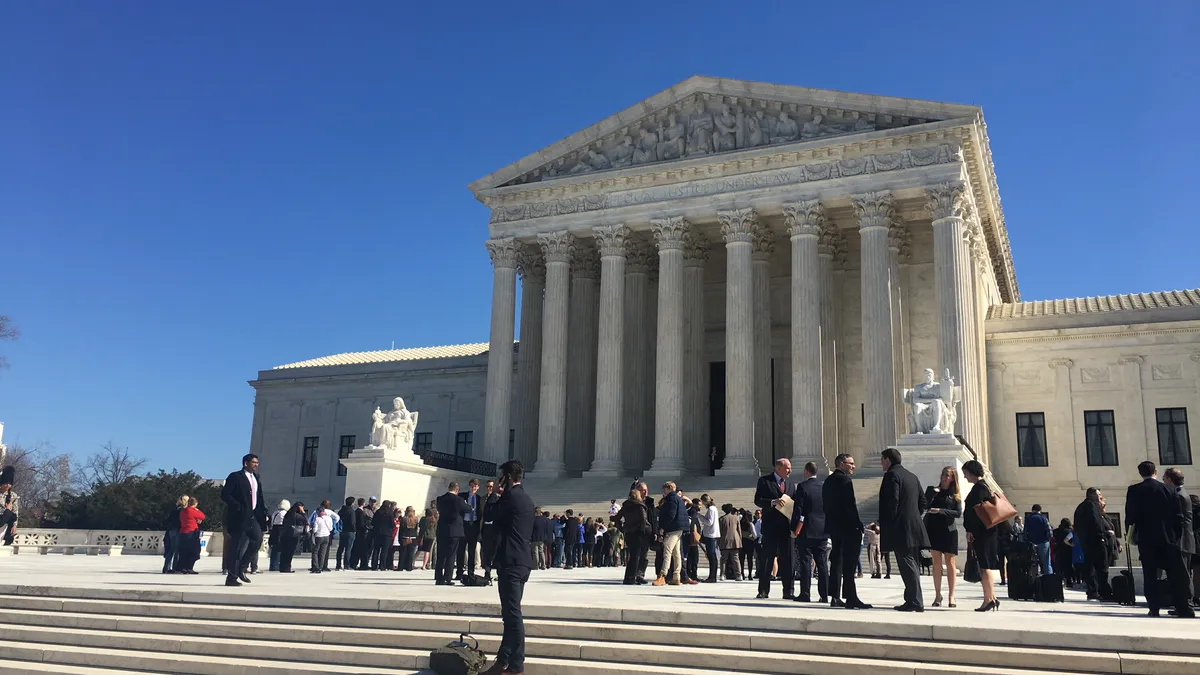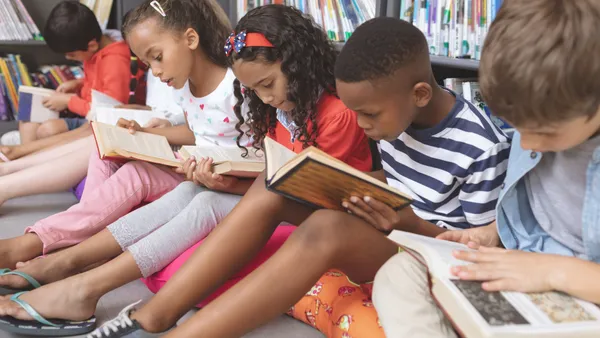Dive Brief:
- In a new report titled “Our Common Purpose: Reinventing American Democracy for the 21st Century," the American Academy of Arts and Sciences recommends investing in civics education for all ages and all communities in K-12.
- Specifically, it points to curricula, professional development for teachers, ongoing program evaluations and a federal award program that recognizes these efforts to instill lifelong civic-learning experiences.
- "The most promising new civics curricula do more than teach how a bill becomes a law; they integrate core civic knowledge with hands-on experience in democracy itself," the report states. It recommends including in curricula:
- Civic projects.
- Service learning.
- Student government.
- Debate training.
- Participatory budgeting.
Dive Insight:
The report also mentions a lack of national standards for civics education as an issue. Instead, it points to recent legislation in Florida, Massachusetts, Colorado, Illinois and Arizona as "reinvigorating" civics curricula to include core civic knowledge with hands-on experiences.
The emphasis on civics education has been renewed as COVID-19 and civil rights unrest take hold of the nation.
Yet, statistics show how little Americans know about and understand civics. In 2016, for example, an Annenberg Public Policy Center study found only 26% of Americans can name all three branches of government, while public trust in government was only 18%. Only 23% of 8th-graders performed at or above proficiency on the National Assessment of Educational Progress that year.
More recent NAEP results show student performance in civics is basic and has held steady in recent years after an initial increase since its inclusion in the performance test in 1998.
"Social studies instructional time, course requirements and resources have been gradually declining since the standardization movement and the subject's value diminished with each educational policy initiative that pushed civics, history and geography out of the K-8 curriculum," said Tina Heafner, president of the National Council for the Social Studies.
And in his 2019 year-end report, U.S. Supreme Court Chief Justice John Roberts said he was concerned “civic education has fallen by the wayside.” He included information on the judiciary's "Classroom-ready" materials, teacher professional development resources and student opportunities. In 2017, Justice Sotomayor also emphasized the role of students in civic life, saying there needs to be deeper efforts to help others understand "the importance of [students'] involvement in community building."
It became apparent after the 2016 elections that students and teachers may not have been well-equipped to discuss the sensitive topics that were coming to light. According to data from the National Center for Educational Statistics, 92.9% of high school students in 2011-12 were taught by government/civics teachers who had not majored in civics. Another 78.3% didn’t have a civics teaching certification.













